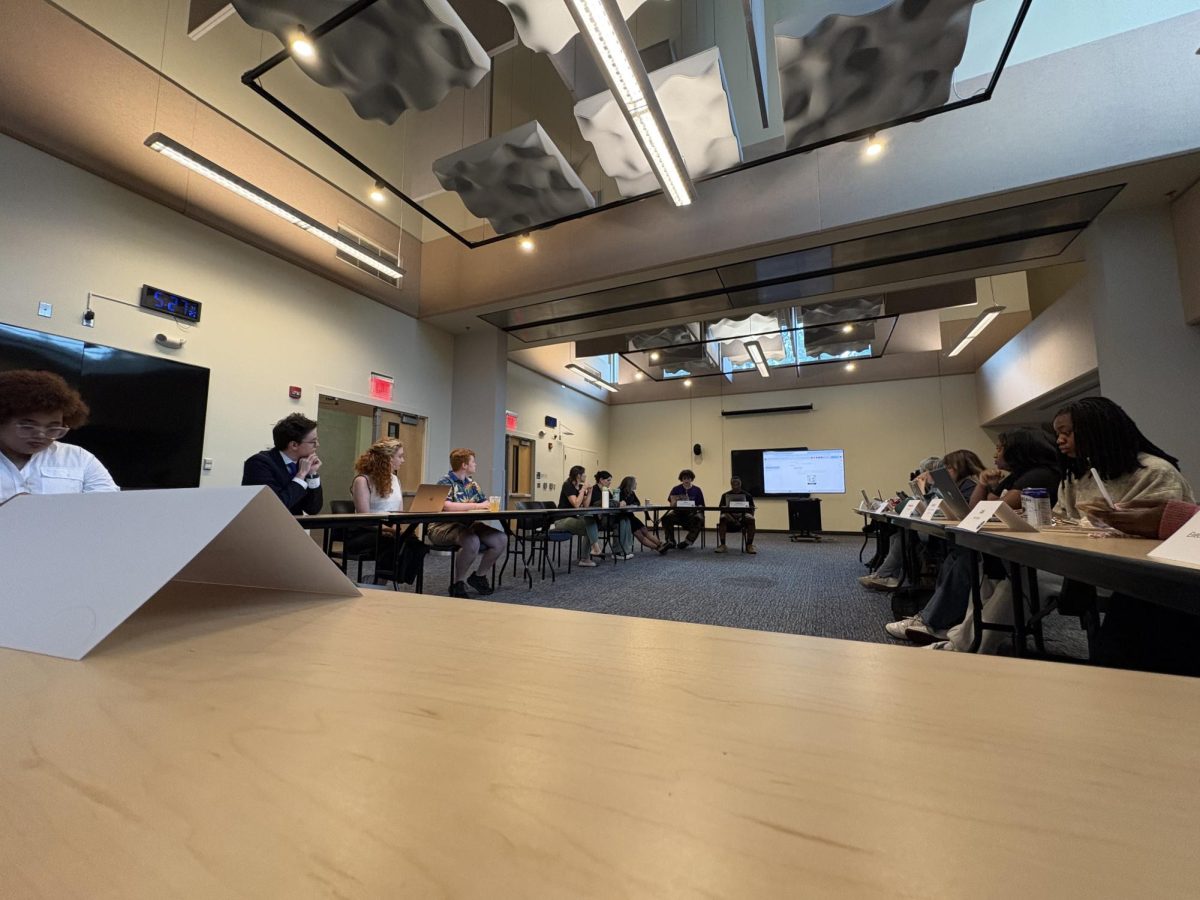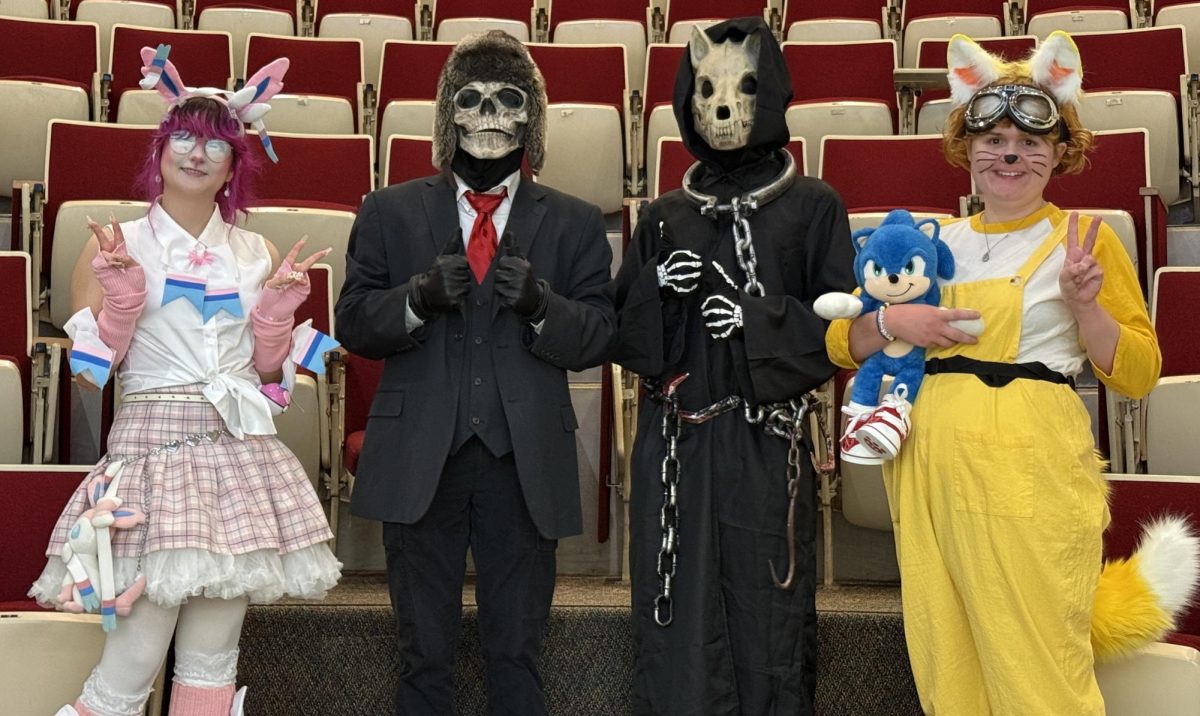Ezra Maille
Managing Editor

[email protected]
Nine days after creating a university-sanctioned mural in support of the Black Lives Matter movement, UNC Asheville campus went into lockdown after receiving a threat via email to remove the mural on Oct. 9.
“As all of us know, there are those that see our commitment to racial justice, our support for our students of color, our intention to raise awareness of history and to reject the ongoing violence against Black and other people of color in this country so problematic as to threaten violence against us,” said Chancellor Nancy Cable in a final email update after the lockdown ended.
Although attempts have been made by the student newspaper and other student journalists to access the threatening emails, Sarah Broberg, the special assistant to the chancellor for communication and marketing, said only the information already shared with the campus community could be provided.
“This is an ongoing investigation and we will provide additional information as it becomes available,” Broberg said.
The Blue Banner’s multimedia team attempted to speak with UNCA Police Chief Eric Boyce about the threat but he declined to comment.
Amanda Martin, general counsel to the North Carolina Press Association, said state law entitles journalists to a certain amount of information during on-going investigations but access remains limited. \
“The public records law basically says that documents that are in the hands of public officials are public unless there’s a specific statute that makes them confidential,” Martin said. “So for the most part, as a general rule, the public records law, just like it sounds, deals with records, documents, things like documents.”
Martin said two exceptions to the public records law exist, one dealing with personnel files and the other with criminal information.
“So it’s less about documents. The law doesn’t say for instance that you get the incident report or anything like that, it says this is the information that you’re entitled to get,” she said.
Martin referred to chapter 74G of the North Carolina legislature, a chapter titled the Campus Police Act. A subsection of this statute, dealing with campus police records, states the conditions under which any member of the public may request and access investigative information. The seven points outlined by the records section detail specific information such as the circumstances of an arrest, the time, location, personal information of the perpetrator, communication records between employees and the daily crime log.
“This is what you’re entitled to,” Martin said. “The campus police are who’re going to be answerable under this statute.”
Melanie Fox, the associate dean of students at UNCA, a member of the care and crisis team as well as a threat assessment team member, facilitated many of the lockdown procedures students were made to follow. She said the first step after issuing the lockdown order was to lock down all the residence halls to ensure the safety of the students.
“We really didn’t know where the threat would be coming from,” Fox said. “We were thinking about how long could this be in place, what should we do in terms of students being able to get food, what should we do as it relates to having them leave the residence halls, what happens if they leave the residence halls.”
Fox said having campus police stationed around campus at every entrance and exit proved problematic when students attempted to leave or return. She said each instance was dealt with on an individual basis.
“Students were leaving to go to work and we were like ‘you might not be able to get back here if you leave to go to work.’ So some of them went back into the residence halls, some of them were like ‘I’m just going to have to take that chance,’” Fox said.
According to Fox, students were not turned away from returning to campus but were made to wait while they were properly vetted by security. She said returning students were informed that while they would be allowed back in, if they left again they might not be able to come back until the lockdown ended.
“We would communicate with campus police who was stationed where the student was located, they would give us their name and ID number and we would then talk to the student to see why they were away from campus and we would also reiterate to the student that leaving campus in the future that day, until we were out of shelter in place and lockdown, might mean that they might not be able to return to campus,” Fox said.
Ong Yang, a mass communication and new media student, said she was at work when the lockdown notice was sent out and wasn’t aware anything was happening until she read her messages after work. Apparently, Yang said, the university was supposed to allow students to return to campus before 10 a.m.
“I tried to turn in and they said that I couldn’t come in. I said ‘well I live on campus’ and they were like ‘well it’s probably safer that you’re not here,’” Yang said. “I asked them where I was supposed to go because I didn’t know how long this was going to last and they said ‘I don’t know, anywhere.’”
Yang ended up driving all the way home to Hickory, an hour and a half drive from campus. She said although she had her OneCard with her, campus police never asked for verification that she was a student.
“They just turned me away,” Yang said. “I even told them multiple times that I was a student that lived on campus but they still didn’t let me in or anything.”
If the lockdown had lasted longer than 7 p.m., Fox said the senior staff was prepared to work out an arrangement for providing returning students safe places to stay. For on campus staff such as the resident assistants, Fox said they were tasked with staying updated and communicating with students who may not be aware of the procedures.
Although federal authorities were part of the investigation, according to an email from the chancellor, Martin said access to most information at that level directs the public to the Freedom of Information Act, a statute she described as a bit more narrow.
“The federal law has more protection, more exemptions for things that are on-going than we do,” Martin said. “In North Carolina, under our law, it doesn’t matter that it’s still an open investigation, you still get the information.”
According to Martin, all information outlined in the state’s Campus Police Act should be readily made available to the public. As of now, campus police have not announced any arrests made in the investigation so no information may be released.
“They may lawfully be able to withhold those but you need to get a pretty darn good description of what happened. What’s the violation of law that’s being investigated,” Martin said.
Once the university deemed it safe enough for staff to enter residence halls, the undertaking of providing food to all on campus students began.
Meghan Ibach, the sustainability and marketing manager for dining services, said the dining staff was greatly reduced due to the lockdown. She said a small group working with other managers were charged with providing food for the entire campus.
“At 9:45, we were asked to prepare food for 1300 by 11am,” Ibach said. “That was tough.”
In addition to providing as many meals as possible in a short period of time, Ibach said they also had to follow COVID-19 procedures and ultimately settled on individual packaged items, taking into consideration dietary restrictions.
“The dining hall did an amazing job,” Fox said. “Within the course of two hours they were able to prepare about 1,200 meals for lunch and did the same thing again for dinner. All their staff wasn’t there because they had received the message and didn’t come in so they were working with very limited staff to put that together and make that work.”
In addition to extra security at entrances and exits to campus, Fox said campus police conducted more frequent patrols and additional rounds of residence halls. She said Mills Hall and Ponder Hall saw the most police presence on account of their proximity to the Black Lives Matter mural itself.
“We haven’t had anything like this before. We’ve definitely had some shelter in places but not based on this type of threat,” Fox said, a staff member at UNCA for the past 28 years. “I think we did a good job of coming together as a group from student affairs to determine what are our most important things, who’s going to do what and how do we get this done in a timely manner. It’s a lot to put together in a short period of time but I feel like for the most part, other than a few kinks here and there, we did really well.”


















